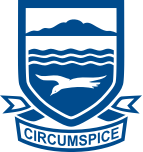The school’s optimal conditions for learning aim to develop a positive school culture, ensuring students create connections, thrive in the Rangitoto College environment and are empowered to succeed in the future.
We develop this connection with an intentional focus on whanaungatanga or positive relationships, clear routines and expectations, reciprocal and personal responsibility.
The knowledge-rich curriculum is dynamic, challenging and exciting, enabling students to expand their vision and define their own personal ambitions for the future.
In a knowledge-rich curriculum, the specifics of what students learn matters and subject traditions are respected. Acquiring powerful knowledge is seen as an end itself as there is a belief that we are all empowered through knowing things.
A good knowledge-rich curriculum embraces ideas from cognitive science about memory, forgetting and the power of retrieval practice.
The curriculum is not simply a set of encounters from which students form adhoc memories; it is designed to be remembered in detail so therefore it must be carefully planned, giving thought to the optimum knowledge sequence for building a secure schema. At Rangitoto College we believe these knowledge-rich principles create a curriculum that is rich and empowering.
To ensure the delivery of the knowledge-rich curriculum, Rangitoto College has again looked to the strongest educational research to find best-practice.
Five teaching principles have been identified to bring the curriculum to life in the classroom. Embedding subject specific language, explain and question explicitly, utilise retrieval practice, provide effective feedback and consider cognitive load are the principles that every teacher employs to engage students and to increase students’ ability to learn deeply and lastingly.
These fundamentals in teaching and learning here at Rangitoto College, combine to allow our students to deeply understand knowledge that is essential, enabling them to problem-solve, synthesise, analyse and apply higher-order thinking skills increasingly effectively and independently.
We are confident that this educational approach will support our students in school to reach their academic potential, succeed highly in IB, NCEA and scholarship and set them up to flourish in their future endeavours at university, in a trade and the world of work.
The integration of Mātauranga Māori in teaching and learning programmes is a vital step towards honouring and acknowledging the contributions of indigenous knowledge. This also creates an inclusive and empowering educational environment for all students. By embracing Māori perspectives, language, and cultural practices, schools promote equity, diversity, and powerful academic experiences.
Our partnership with local Mana Whenua assists our staff in embedding Mātauranga Māori into various subjects within the curriculum.
Our college community is committed to growing our understanding of Mātauranga Māori and how this positively impacts our students. Our Māori students can see their culture and identity reflected in the curriculum which validates their lived experiences and empowers them to succeed academically. Additionally, non-Māori students benefit from exposure to diverse perspectives and worldviews.



